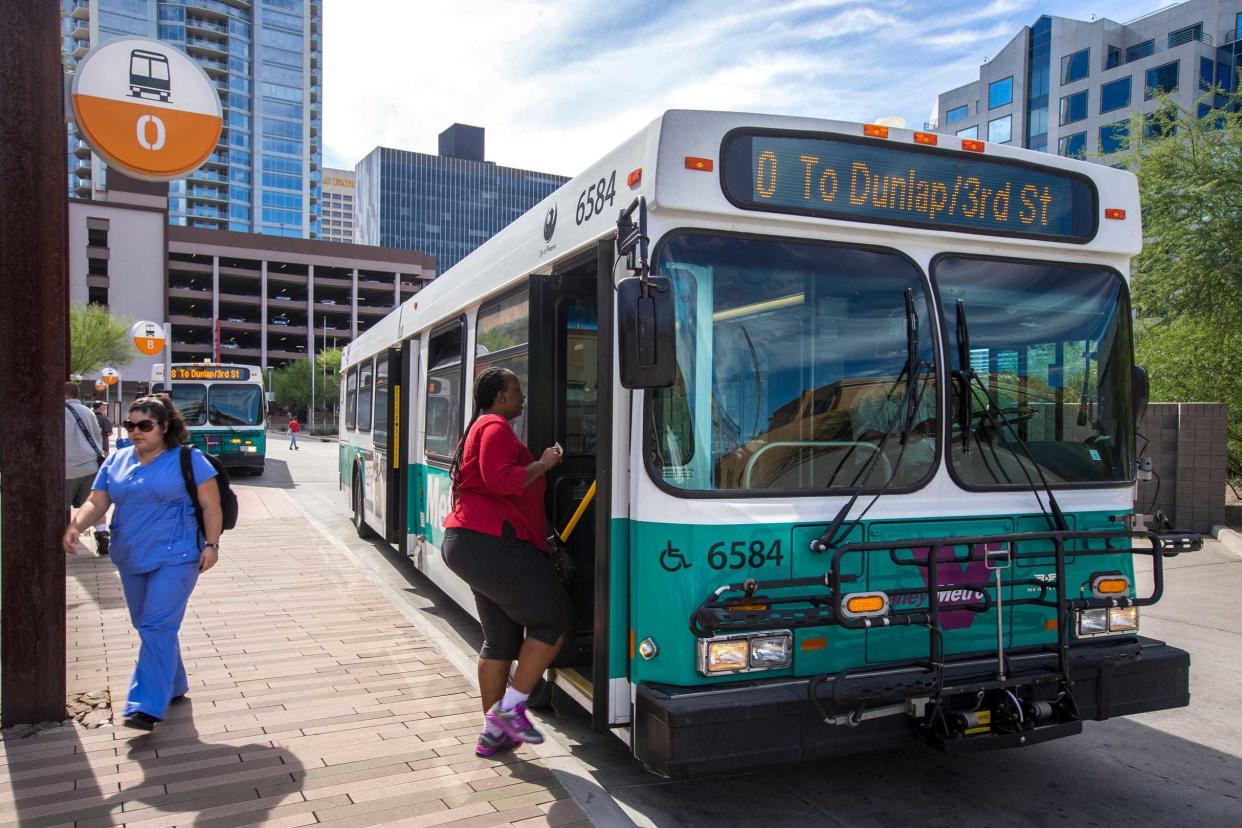Voters, not Arizona lawmakers, should have the final say on killing light rail

Brinkmanship this legislative session turns out to involve not the behemoth state budget but, of all things, local transportation.
Left hanging in the session’s waning days is the fate of Proposition 400, an extension of a half-cent sales tax to fund regional transportation in Maricopa County.
Or, actually, the ability for county residents to even exercise their right to vote on whether to approve extending the tax.
The stall at the statehouse has been a curiosity.
Some lawmakers want to nix light rail
Legislation enabling a public vote on Proposition 400 was passed without drama in the 2022 session, only for Gov. Doug Ducey to unexpectedly veto it days after the Legislature had adjourned.
The new set of GOP lawmakers this year decided to make hay with it, taking apart the Maricopa Association of Governments’ proposal with demands to change the funding percentages on public transit and nix money toward light rail expansion.
It made sense to veer out of their lane to gain a bargaining chip with the governor and Democratic leadership on budget negotiations.
Republicans won a good deal of concessions out of the budget deal, including transportation projects for their own districts.
What are they holding out for now?
Why did Hobbs leave this unresolved?
Sharper questions could be asked of Hobbs and the Democrats.
Why did they sign off on a budget agreement that leaves unresolved a proposal affecting two out of three Arizonans?
The stalemate puts in jeopardy a tax that expires at the end of 2025.
It threatens to disrupt years of transportation planning and to take Maricopa County out of the running for hundreds of millions of dollars in federal grants and matching funds.
What motivation would Republicans now have to cede ground, when they have an opportunity to ax light rail, which in their view is the epitome of government waste?
That is, motivation beyond the obvious: Local transportation is none of their business.
Local transportation is none of their business
Some of their ancillary complaints about the updated Proposition 400 warrant debate:
Some money would be redirected from freeways toward buses and light rail.
Money for arterial roads will now compete with undefined “regional programs.”
(Though it seems far-fetched to call funding for transportation-related projects such as bike lanes, pedestrian paths and lane reductions a “slush fund” when they would be evaluated on a set of criteria — which are defined.)
But the Legislature is neither the proper forum nor arbiter of regional transportation policy.
Failed attempt: Why Gilbert tried to block commuter rail funds
That belongs to local government and the voters they answer to.
MAG, metro Phoenix mayors and city officials have to convince voters, against the backdrop of an uncertain economy, that the half-cent transportation tax is worth extending.
That includes defending a reconfigured funding formula directing less money than before to freeways and roads and more toward subsidies for public transportation and new projects.
Let voters decide in an election year
The opposition is free to resurrect the complaint that light rail is the most expense mode of transit that serves but a tiny sliver of residents, or to raise questions about rising operational costs and declining fare revenue.
Just as supporters are free to ballyhoo the economic stimulus that light rail purportedly generates.
The best outcome Republicans could force has already been accomplished.
Ducey’s veto meant Maricopa County couldn’t put the Proposition 400 extension on the ballot this spring, as planned.
Continuing the sales tax rightly deserves a vote during an election year, when turnout is greatest.
That can happen in 2024 only if the Legislature drops its foolish efforts to determine local policy.
Reach Abe Kwok at akwok@azcentral.com. On Twitter: @abekwok.
This article originally appeared on Arizona Republic: Light rail and local transportation are none of lawmakers' business

